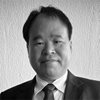Subtotal: $
Checkout-

Yearning for Freedom
-

Taking Lifelong Vows
-

Poem: “And Is It Not Enough?”
-

An American Mother Forgives
-

I Cheerfully Refuse Despair
-

The Glory of God Is a Human Being Fully Alive
-

Arvo Pärt’s Journey
-

Readers Respond
-

Humanizing Medicine
-

The Forgiveness Project
-

The Busted Bean
-

Jakob Hutter, Radical Reformer
-

Covering the Cover: Freedom
-

Disciplines for Freedom
-

The Open Road
-

We Are All Fiddlers on the Roof
-

Bad Faith or Perfect Freedom
-

American Freedom and Christian Freedom
-

Jane Eyre Holds Her Own
-

Becoming a Free Person
-

In Defiance of All Powers
-

Recovering from Heroin and Fiction
-

The Workers and the Church
-

The Body She Had
-

Encounters at the Southern Border
-

A Lion in Phnom Penh
-

Become Slaves to One Another
-

Form and Freedom
-

Paraguayans Don’t Read
-

The Bible’s Story of Freedom
-

The Autonomy Trap

An Exodus From China
A persecuted house church chooses to flee together as a community.
By Pan Yongguang
October 2, 2024
Available languages: español
Sixty-three members of the Mayflower Church finally landed in Texas on Good Friday 2023, three years after the group fled China and sought asylum. Plough’s Sam Hine interviews their pastor, Pan Yongguang, about their sojourn.
Plough: Let’s start at the beginning. How did you become a Christian in China?
Pan Yongguang: On the day my father died in a car accident, some Christians came to the hospital and preached the gospel to me. After that, I went to church with them. I attended the church’s Bible study for two years, constantly asking questions and debating, but never praying. Then I read Jesus’ words: “Healthy people do not need a doctor, but sick people do. I came not to call the righteous, but sinners.” That night I admitted that I was a sinner and prayed to God. I was baptized at Easter in 2003.
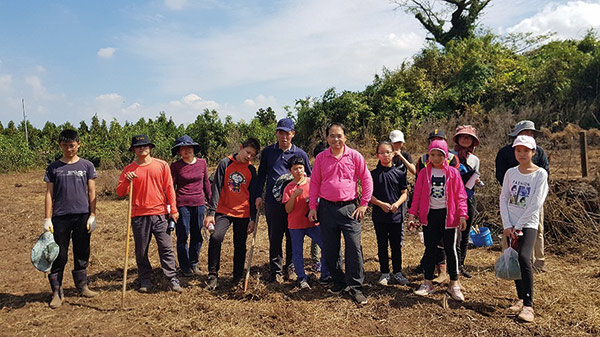
Members of the Mayflower Church in South Korea. All photos courtesy of Beth Feng / Mayflower Church. Used by permission.
Why did you end up leading an illegal house church?
The person who preached the gospel to me was a member of a house church. As my faith matured, I realized that the Three-Self Church authorized by the atheist Communist Party of China is not true Christianity but a tool for ideological rule. In China, the house churches are the true churches that follow the teachings of the Bible. When I became a pastor, I knew that if I established a house church it would inevitably be suppressed by the government, and I was ready and willing to pay the price.
Can you give an example of harassment you and your church faced in China?
The church in China has been repressed since the Communist Party came to power in 1949. Ideological control relaxed as part of China’s admission into the World Trade Organization in 2001, but repression has intensified significantly since Xi Jinping came to power in 2013. My city, Shenzhen, is adjacent to Hong Kong and is known as the most open and dynamic city in China, but the church there has also faced severe repression. For many years, the secret police monitored my movements and often asked me to report on church activities. Many times during worship, the police barged in and forced us to stop.
Paul writes, “It is for freedom that Christ has set us free” (Gal. 5:1). What did that verse mean to you while living under state repression?
Christ has set us free and made us free. We are not bound by sin, so we have more strength to endure and persevere in our faith in the face of repression. Just like it was for Christian slaves in the Roman Empire or black slaves before the American Civil War, this spiritual freedom is precious, but it is far better to be truly free from state repression as well.
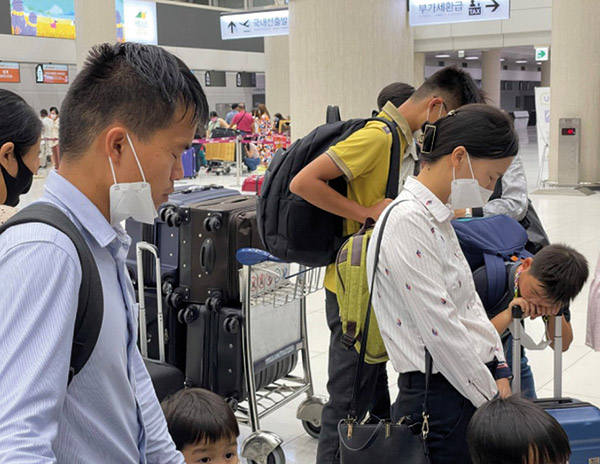
Praying for protection at the airport in South Korea, en route to Thailand.
Why did you decide it was time to leave China?
Faced with increasing pressure from the government, we had wanted to leave for a few years, to escape. We imagined that when Xi Jinping stepped down, we would come back. We never thought about never coming back, let alone everyone going to the United States. In late 2019 and early 2020 we went in smaller groups to Jeju Island, South Korea, a holiday destination for Chinese people, and then applied for asylum there.
Did any members choose to stay behind?
We fully respect the free choice of each member, and about one-third remain in China. The situation of each family is different, and there are many reasons for choosing to stay in China. The members who remain in China are currently facing even more severe persecution because we left. We still keep in touch, but for security reasons we don’t contact them often.
It took over three years before you finally found refuge in the United States. Looking back, what were some of the most memorable moments on your journey?
After a long period of no work, in the winter of 2020 a Korean pastor found us an hourly job pulling radishes in the fields. As professionals, none of us had done fieldwork or any tiring physical labor before. On the first morning, I was worried about sending my thirteen-year-old son to the fields at 5 a.m. He said to me, “Dad, don’t worry. Look, I’m as tall as you.” He came back in the evening, very tired and happy. Not only did he get his wages, he also brought back two radishes. Two sisters, tired out from the work and missing their lives in China, sang Psalm 137: “By the rivers of Babylon we sat down, and we cried when we remembered Zion!”
In the spring of 2021, the cherry trees were blooming on Jeju Island. A young girl from the church happily ran up to me and asked, “Pastor, do you think my clothes are beautiful? I picked them up from the trash can yesterday.” Looking at her smiling face, I couldn’t help but turn away and cry.
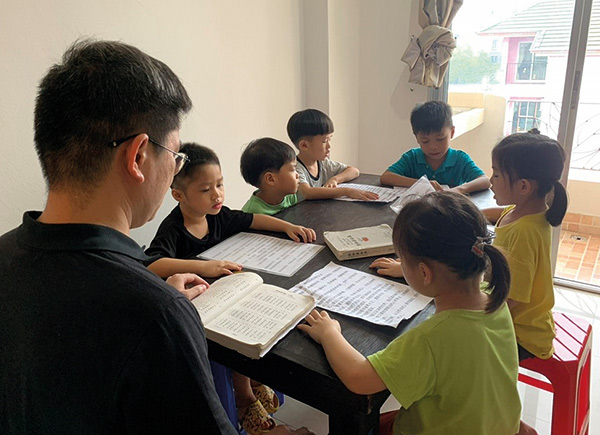
Children learning psalms in Thailand.
What were the most difficult moments?
The most difficult moment was when we decided to move from South Korea to Thailand. Everything was uncertain and the future was unknown. That’s when we all signed a “New Mayflower Compact” patterned on the one the Pilgrims made on the Mayflower before they arrived in the New World. Ours concludes like this: “We solemnly swear before God to unite, support, and never abandon one another, forming this sacred community. To further the objectives of this covenant, we pledge to fully adhere to and obey the Word of God. Relying on God’s grace, we humbly seek his blessings.”
In the winter of 2022, we were still stuck in Thailand. The weather was very warm, but my heart was cold. It was much more dangerous than in South Korea; there were Communist spies tracking and threatening us. For everyone’s safety, our US supporters advised me to hide separately with my family and not contact the congregation. One evening, my wife and I took a walk and didn’t return at the agreed time. My son and daughter cried and prayed; they thought their parents had been arrested.
Eventually, though, you were all detained. Then, at the last minute, you were granted asylum in the United States, thanks to the political action of American Christians. What was that day like for you?
I couldn’t believe it was true. We fully expected that the Thai authorities would deport us back to China, as they had many others. The women and children, who had been separated from us, thought it was another deception and didn’t dare to walk out of the prison until they saw the men outside the gate. An American consul came to pick us up. He told us in person: “Now I will take you to the airport to fly to the United States. The tickets have been purchased.” We hugged and cried at the prison gate. I led everyone in singing a song, Psalm 126. We choked up while singing, the prison guards were crying and recording videos with their mobile phones, and the American consul was crying and making the sign of the cross. Then the consul issued us visas. As I held mine, I thought of the movie Schindler’s List and thanked the US government for including everyone in the Mayflower Church on its list. Boarding the plane to the United States, I still couldn’t believe that what had happened was real.
Your group is exceptional in that you fled together as a community. Did that make it harder or easier?
Fleeing together as a community made things easier, because people who love and trust each other can help and care for each other. During the escape, we never felt abandoned, and we always encouraged each other.
But it also made things more difficult, especially because more than half of us were minors. It was difficult for us to hide, and we easily became the target of Communist Party surveillance. In terms of economic resources, we had to rely on support from others. Eight children were born during the escape, bringing our number to sixty-three, and it was particularly difficult to take care of newborns without medical insurance.
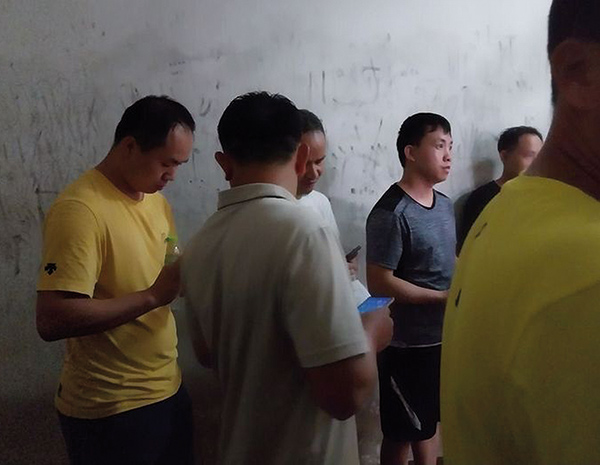
Detained members of the Mayflower Church in a cell in Thailand.
Did the biblical story of Exodus resonate with you during your sojourn?
I preached on Exodus for a year and a half before we left China, and the children watched The Prince of Egypt several times. The most important thing to me in these stories is that God’s call is the decisive factor.
I know our long journey has been called a modern Exodus. It is a miracle that we could all enter the United States after several years. In the process, each person’s courage and confidence in God proved indispensable. After we arrived in the United States, someone suggested my English name should be Moses. For me, that’s complicated. I am deeply proud of it, but I know I often complained to God and felt discouraged by the difficulties. Then again, Moses also did during the Exodus from Egypt.
What does community mean to you, after all you have been through together? Will you stick together now that you live in a highly individualistic society?
I have known these families for more than ten years, some more than twenty years. I have watched every child grow up, and I am now the principal of the school and teach the children almost every day. We have a deep understanding, trust, and love for each other, and it is painful to be separated from each other.
I’ve told the congregation, “I am your pastor, not someone else’s pastor; without you, I have no value.” Members of the congregation have also told me, “Where the church is, my home is there.” We are a very close community, and no one wants to separate. Coming to the highly individualistic society of the United States, we are sure to face temptations, but we are still very united now. The Pilgrims who came on the Mayflower four hundred years ago lived in a community for twenty-four years before they separated. I am not sure how long we can stay together, but this is the direction I am working toward, because Jesus wants his saints to be gathered together.
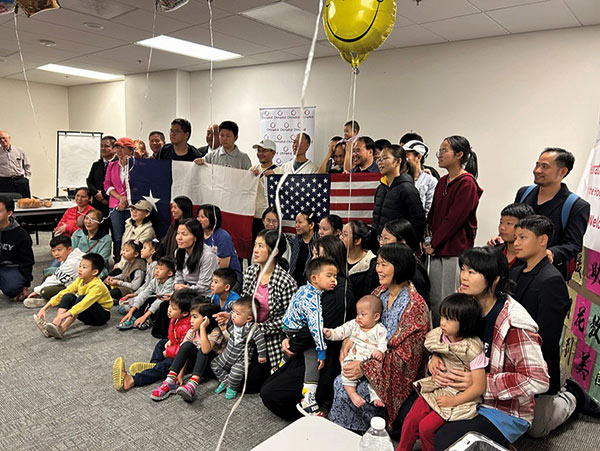
Arrival in the United States.
What challenges or obstacles does your group still face?
How to preach the gospel and bear witness to the Lord Jesus in a completely new environment is our biggest challenge, and not knowing English is our biggest obstacle.
How might fellow Christians support your new beginning?
We have a vision to build a “Mayflower Community” here in Midland, Texas, where we have settled, with a Christian school in the community to teach children the Bible and Chinese and English. This community will become a refuge city for other Chinese people who are persecuted for their faith. All this is just in conception and will require the support of fellow Christians praying for us, visiting and encouraging us, and contributing to building our community.
For more information on the Mayflower Church, visit chinaaid.org/mayflower. Interview responses have been translated from Chinese.
Already a subscriber? Sign in
Try 3 months of unlimited access. Start your FREE TRIAL today. Cancel anytime.










































